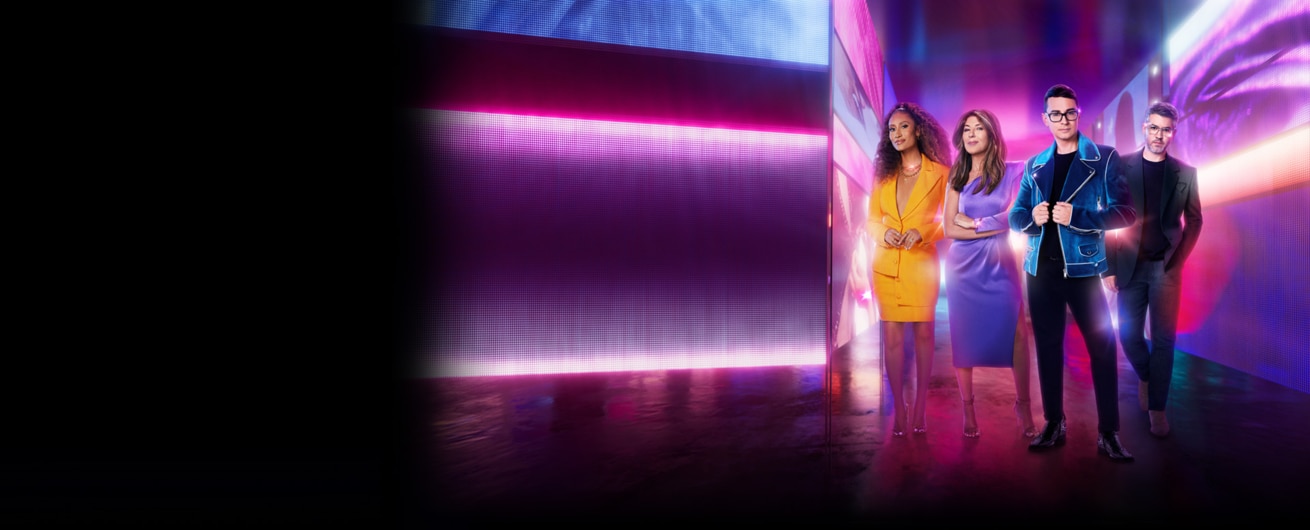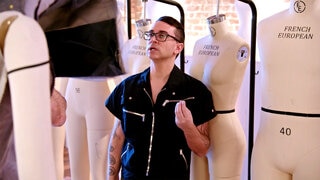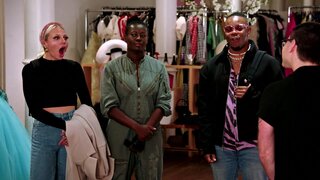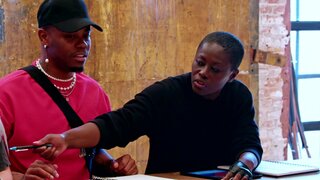Project Runway's Tessa Clark Reflects on the Highs and Lows of an Emotional Season
The Project Runway Season 17 contestant opens up about how she "grew as a designer" during the fashion competition.
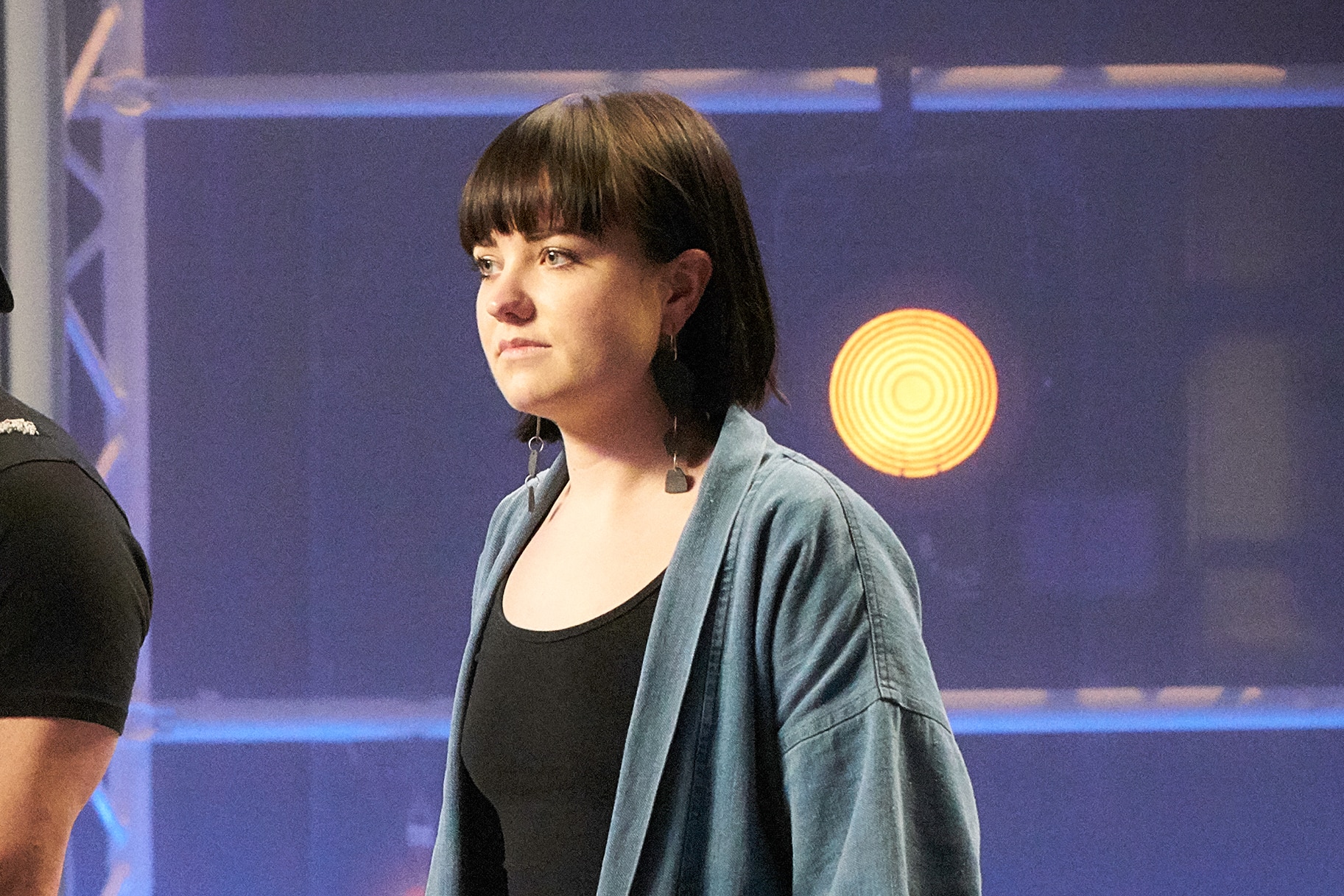
Opening yourself up on a national stage is never easy, and that's one thing Bravo's Project Runway Season 17 contestant Tessa Clark knows for sure. "It takes a lot of bravery from all of the designers to put ourselves out there," the self-described minimalist designer shared as she sat down exclusively with The Lookbook. "It's daunting, but rewarding."
After a challenging season filled with plenty of high and low moments, Tessa says, "I definitely grew as a designer." Read on to hear more about her Project Runway journey.
How would you describe your aesthetic and vision as a designer?
I definitely refer to myself as a ready-to-wear designer. I'm not an evening-wear or red carpet designer by any means. And in general, I am a minimalist as a designer. I really value high-quality textiles and small details. I want to make clothing that is timeless, and that women feel confident in.
Tell us about the woman you're designing for.
I like to think of her as a feminist. She loves to travel, she appreciates art, she is educated, and she appreciates quality clothing.
What is the biggest challenge you've faced this season?
Oh my gosh. So many of the challenges were out of my comfort zone, which I'm sure [is the case] for many of the designers. I would say just the the pressure of having to come up with a design so quickly and then shop for fabric. At first with the Elton John menswear challenge, I was really nervous because I have never designed anything for a male body before. And performance wear and sparkly things are not something I typically go for. So, you know, that's daunting, but I feel like I definitely grew as a designer and felt like I really was able to figure it out. I'm able to make something much faster than I originally thought I could, even though I feel like I was one of the slower sewers on the show.
Was it difficult to open yourself and your designs up on a national stage?
Definitely, yes. I feel like it takes a lot of bravery from all of the designers to put ourselves out there for the chance to use the platform as a way to jump off or to continue with our businesses and to hear all the feedback. When designing at home, it's so easy to focus on patterning one day, and then finding fabrics the next day, and then figuring out finishes. On Project Runway, of course, that's all in one day or two days. It's daunting, but rewarding.
Do you feel like your comments about working with plus-size models were misunderstood?
I do feel like my comments were misunderstood. I was primarily worried about my own abilities in creating a garment and delivering for a woman that is curvier and busty. It takes more time to create something with structure and support. I feel like a lot of people might have taken that as showing disdain for my model. And of course I loved working with [my model] Asia and I love women of all shapes and sizes.
Like [Project Runway judge] Brandon [Maxwell] said, I think it's important to be able to work with women of all sizes because someone can come to us and have any sort of body shape or be any size and we should be able to create for them. So I definitely agree with Brandon in that sense. And I've since talked with Asia and Kate, both of the models, and neither of them took offense to it. They understand that it's a show, and that it's high pressure situations.
How do you embrace and celebrate diversity of all kinds in your designs?
Working retail and buying for a store has really given me the opportunity to understand what women want and desire in clothing. It has really shown me face to face what women like in my designs, and what I could be doing better with my designs. I have a great opportunity with selling direct-to-consumer physically to really get a sense of what women want.
At my boutique in Cincinnati, it's been my goal for the past year to continue stocking larger sizes and expanding all of our size offerings. So that's something I've been working on for over a year. As an emerging designer I feel like it takes so much more money to offer every size range, so as I'm making money from my stock and sales, I'm slowly adding and extending sizes. Cincinnati is a diverse city and I sell to women of all ages and sizes and ethnicities. I sell tops to 20-year-olds and I sell the same tops to 60-year-olds, and to me that's inclusive.
In episode 10, every contestant designed for a cause they were passionate about. Tell us about yours.
My cause was women's rights, piggybacking off of the Me Too movement. I designed a dress that was pretty in your face because [host] Karlie [Kloss] and [judge] Elaine [Welteroth] said, "This can be in your face or it can be more subdued, it's totally whatever you guys want to do." Mine was definitely more obvious and out there. I feel very strongly that a woman should have the rights to her own body. I feel very strongly about speaking out against sexual abuse, physical abuse, mental abuse, so really it was just about taking a stance with that. I've never worked with or donated to [the national sexual assault hotline] RAINN before but I'm excited to have the T-shirts from Nineteenth Amendment. The proceeds go to that organization.
It was emotional. It was right after [contestant] Lela [Orr] left and Lela was like my best friend on the show and I was like bawling from that, and then [mentor] Christian [Siriano] walks in and was like "OK, your next challenge!" I was like, oh god!

